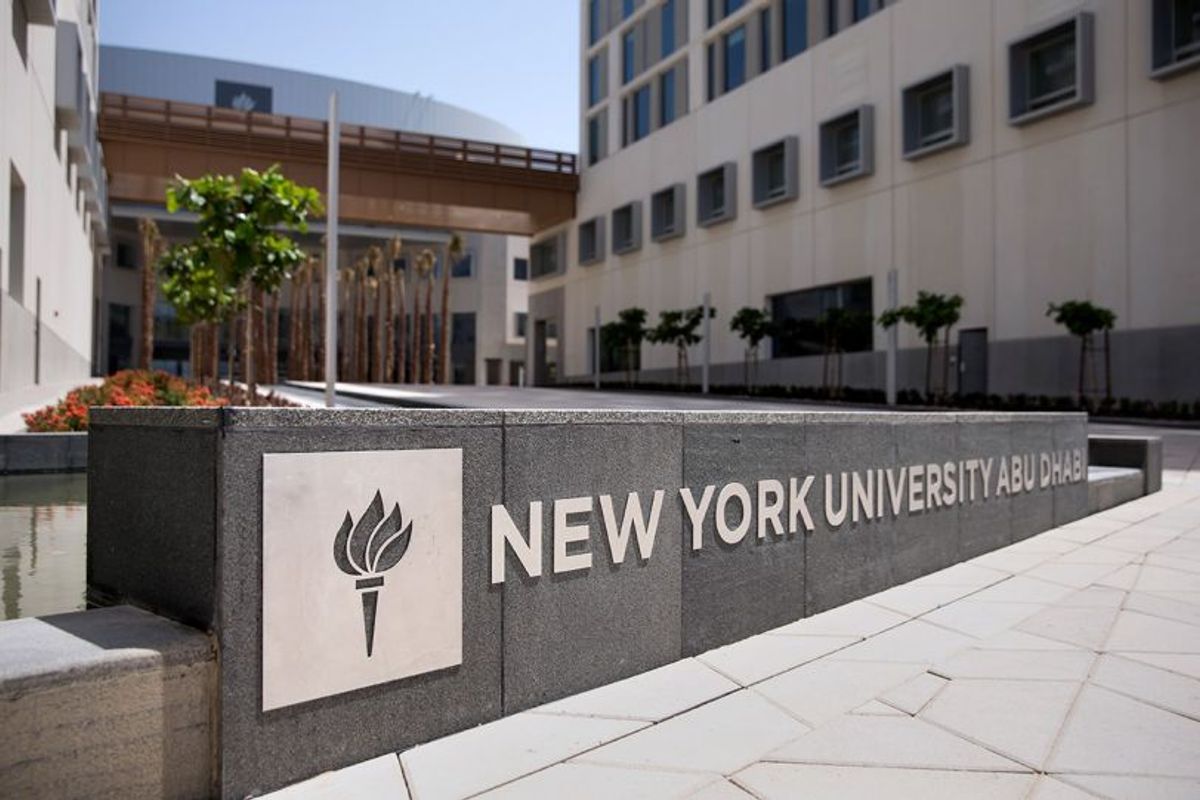The development of the United Arab Emirates (UAE) art scene quietly hit a milestone last month, when NYUAD, the Abu Dhabi campus of New York University, announced the country’s first Master of Fine Arts (MFA) programme. Starting next autumn, the two-year, $140,000 programme will invite around seven to ten international students to the Saadiyat Island campus for full-time study across art disciplines. At the same time, the university also launched the new Arab Center for the Study of Art, a research institution devoted to scholarship of Modern and contemporary Middle Eastern art.
NYUAD’s greenlighting of these programmes follows the appointment of a new vice chancellor, the art historian Mariët Westermann, in 2019, as well as the ongoing development of the UAE art scene.
“The centre and the MFA come at a time when the ecosystem is more mature than it was ten years ago,” says Salwa Mikdadi, the Palestinian art historian who founded the Arab Center. “This is the very first centre dedicated to the study of art of the Arab world, in an academic institution, anywhere in the world. I’ve been thinking about it for over 30 years.”
An expanding scene
However, the MFA enters a field that is more crowded than the “first-ever” label suggests. Although there are no accredited postgraduate art courses in the UAE, over the past ten years a number of programmes in the region have leapfrogged ahead of universities to provide artistic and curatorial training. These range from Campus Art Dubai, launched in 2012 by the Art Dubai fair, to the ten-month Salama bint Hamdan Emerging Artists Fellowship programme in Abu Dhabi, a mixture of seminars and workshops run in collaboration with the Rhode Island School of Design. Both have become immensely influential on the Emirates art scene and show up with punctual regularity on the CVs of young artists such as Farah Al Qasimi, Afra Al Dhaheri and Augustine Paredes.
Lower-cost and home-grown programmes also have an advantage in a regional context where many Arab artists are prohibited from easy travel, due to visa restrictions and political instabilities. Most of the students on the courses, as well as the staff, already live in the Emirates. By contrast, NYUAD’s accredited programmes bring postgraduate education into line with international norms—reflecting the UAE’s desire to use its wealth to place Arab cultural narratives on a par with those in the West.


